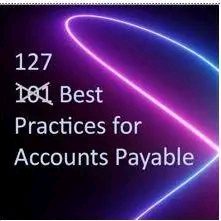What are Notes Payable in Accounting

In the world of accounting, various financial instruments and obligations play a crucial role in assessing a company’s financial health.
One such instrument is “notes payable.” In this blog post, we will delve into the concept of notes payable, its significance in accounting, and its implications for businesses.
What Are Notes Payable?
Notes payable, also known as promissory notes or loan notes, are formal written agreements between a borrower and a lender.
They represent a company’s outstanding debt obligations, typically in the form of a written promise to repay a specific amount of money within a specified time frame.
Notes payable are considered a liability on a company’s balance sheet.
The Purpose and Significance of Notes Payable
1. Financing Operations
Businesses often rely on external sources of funding to support their operations. Notes payable serve as a means for acquiring additional capital for various purposes, such as expanding the business, purchasing assets, or financing projects.
2. Flexibility in Repayment Terms
Unlike traditional bank loans, notes payable offer more flexibility in negotiating repayment terms. Borrowers and lenders can agree upon the interest rate, maturity date, and payment schedule that best suits their needs. This flexibility allows businesses to align their repayment obligations with their projected cash flow.
3. Establishing Creditworthiness
Notes payable contribute to a company’s credit history and reputation. Timely payments and responsible management of notes payable can enhance a business’s creditworthiness, making it easier to secure future financing at favorable terms.
4. Disclosure and Transparency
Notes payable are disclosed in a company’s financial statements, providing stakeholders, such as investors, lenders, and analysts, with a clear picture of the organization’s debt obligations. This transparency helps in evaluating the company’s financial position and assessing its ability to meet its financial commitments.
FAQs
How is notes payable different from accounts payable?
While both represent liabilities, notes payable are formal written agreements that involve a written promise to repay a specific amount within a specific timeframe, often with interest. Accounts payable, on the other hand, are typically short-term obligations arising from the purchase of goods or services on credit.
Can notes payable include interest?
Yes, notes payable often include an interest component, which represents the cost of borrowing. The interest rate and terms are negotiated between the borrower and lender and are documented in the promissory note.
Are notes payable considered long-term or short-term liabilities?
Notes payable can be classified as either long-term or short-term liabilities, depending on their maturity date. If the repayment is due within the next accounting period, it is considered a short-term liability. If the repayment extends beyond the next accounting period, it is classified as a long-term liability.
Can notes payable be converted into equity?
In some cases, notes payable can be converted into equity through specific contractual arrangements between the borrower and lender. This conversion option provides flexibility for both parties and may be used as a means to raise capital or restructure debt.





